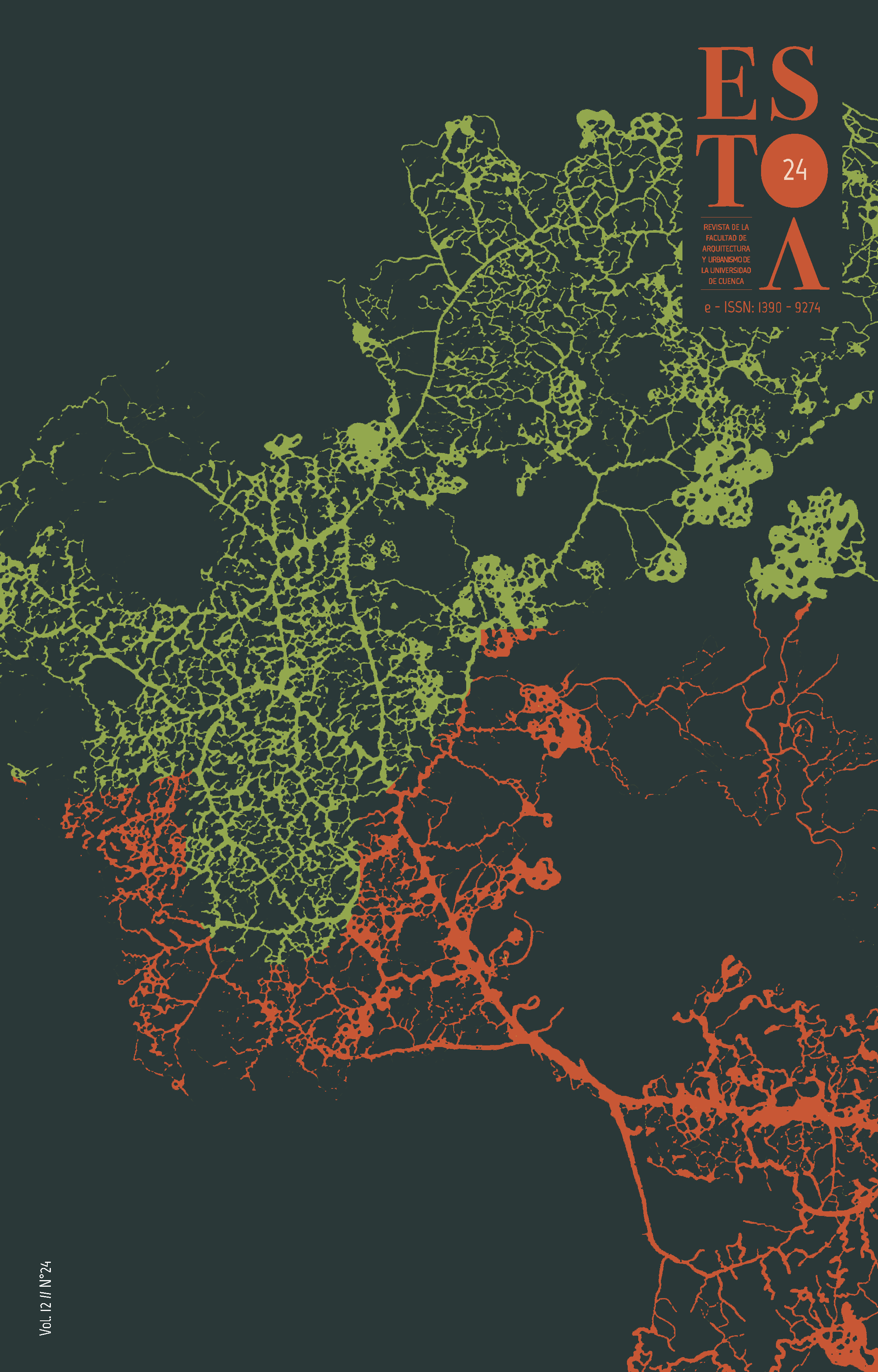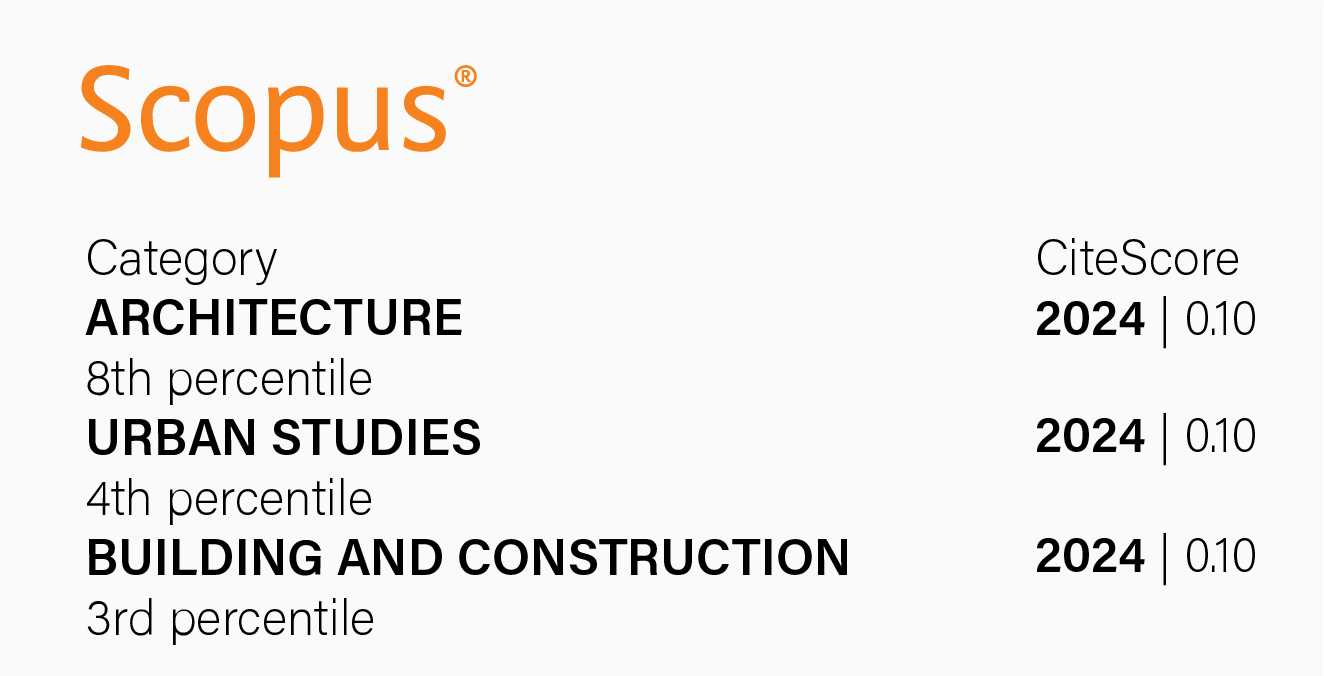Teaching at the Architecture Faculties during lockdown: the School of Valencia (ETSA-UPV)
DOI:
https://doi.org/10.18537/est.v012.n024.a01Keywords:
e-learning, Polytechnic University of Valencia, architecture, covid 19, academic resultsAbstract
The declaration of the alarm state in Spain approved to manage the COVID-19 pandemic, led to the population’s home lockdown. As consequence, the teaching of all the degrees taught at the Polytechnic University of Valencia (UPV) was transferred to a remote online modality. The aim of this study is to verify the effect of the methodological change on the most important indicators of the degrees, such as success and satisfaction rates. In the case of education in the Faculty of Architecture, the consequences of the loss of face-to-face attendance on the different types of subjects will be analyzed: for example, the graphic subjects, which were harmed, or the guided subjects that benefited due to students getting an unexpected time. It will also show the effect of the change in the evaluation model, which had to be carried out remotely, leading to historical success rates in some technical subjects.
Downloads
References
Ananga, P. y Biney, I.K. (2017). Comparing face-to-face and online teaching and learning in higher education. MIER Journal of Educational Studies, Trends & Practices, 7(2), 165-179. http://doi.org/10.52634/mier/2017/v7/i2/1415
Aviram, R. y Tami, D. (2004). The impact of ICT on education: the three oposed paradigms, the lacking discourse. University Ben-Gurión of Néguev. https://docplayer.net/131589805-The-impact-of-ict-on-education-the-three-opposed-paradigms-the-%20lacking-discourse-roni-aviram-debbie-tami.html
Bozkurt, A. y Sharma, R.C. (2020). Emergency remote teaching in a time of global crisis due to CoronaVirus pandemic. Asian Journal of Distance Education, 15(1), i–vi. http://doi.org/org/10.5281/zenodo.3778083.
Cabrera, I. y Fenollosa, E. (2019). Peculiaridades de la formación de profesionales en diseño y la investigación como garante del progreso social -research by design vs research in architecture. I International Congress of Science, Design and Technology, (12-17). Centro de Investigación y Documentación de la Universidad Autónoma de Encarnación.
Cabrera, I. y Fenollosa, E. (2020). La docencia de la arquitectura durante el confinamiento: el caso de la Escuela de Valencia. Jornadas sobre Innovación Docente en Arquitectura, JIDA, (18), 1074-1084. https://doi.org/10.5821/jida.2020.9470
Cullinan, J., Flannery, D., Harold J., Lyons S., y Palcic D. (2021). The disconnected: COVID‑19 and disparities in access to quality broadband for higher education students. International Journal of Educational Technology in Higher Education, 18(26). http://doi.org/10.1186/s41239-021-00262-1
Djukic, A., Mrdjenovic, T. y Jokovic, J. (2015). E-Learning and AMRES in teaching architecture. Jornadas sobre Innovación Docente en Arquitectura, JIDA, 26-41. https://revistes.upc.edu/index.php/JIDA/article/view/5063
Ferreras, B., Mondelo, V., Puga, N., García, R., Moreno, S., y Lidón, I. (12 de marzo de 2020). Se extiende el cierre de colegios a toda España por el coronavirus. El Mundo. https://www.elmundo.es/espana/2020/03/12/5e6a2011fdddff2c1e8b4574.htmL
Ergulec, F. (2019). Instructional strategies for forming online collaborative teams. International Journal on E-Learning, 18(4), 349–372. https://www.learntechlib.org/primary/p/207505/
Fatimawati, I. (2021). Exploring online readiness in the context of the COVID 19 pandemic. Teaching in Higher Education. https://doi.org/10.1080/13562517.2021.1943654
Flores, M. A., Barros, A., Veiga Simão, A.M., Pereira, D., Flores, P., Fernandes, E., Costa, L., y Costa Ferreira, P. (2021). Portuguese higher education students’ adaptation to online teaching and learning in times of the COVID-19 pandemic: personal and contextual factors. Higher Education. 83, 1389-1408. https://doi.org/10.1007/s10734-021-00748-x
Galvis, H. (2018). Supporting decision-making processes on blended learning in higher education: literature and good practices review. International Journal of Educational Technology in Higher Education, 83, 1389–1408. https://doi.org/10.1186/s41239-018-0106-1
Garrison, D.R. (1998). Andragogy, learner-centeredness, and the educational transaction at a distance. International Journal of E-Learning and Distance Education, 3(2), 123-127. https://www.ijede.ca/index.php/jde/article/view/553
Guo, F., Hong, X. y Coates, H. (2020). Accelerated transformation: designing global online higher education. Higher Education Research & Development. 39(7), 1322-1326. https://doi.org/10.1080/07294360.2020.1824209
Hodges, C., Moore, S., Lockee, B., Trust, T. y Bond, A. (2020). The Difference Between Emergency Remote Teaching and Online Learning. Educause Review, 27. https://er.educause.edu/articles/2020/3/the-difference-between-emergency-remote-teaching-and-online-learning
Lagi, R.K. (2020). COVID19 – resilient education in the islands. Higher Education Research & Development, 39(7), 1367-1371. https://doi.org/10.1080/07294360.2020.1825347
López-Aguilar, D. y Álvarez-Pérez, P.R. (2021). Modelo predictivo PLS-SEM sobre intención de abandono académico universitario durante la COVID-19. Revista Complutense de Educación, 32(3), 451-461. http://dx.doi.org/10.5209/rced.70507
Orden EDU/2075/2010, de 29 de julio, por la que se establecen los requisitos oficiales para la verificación de los títulos universitarios oficiales que habiliten para el ejercicio de la profesión de Arquitecto. BOE 185 de 31 de julio de 2010, 66483-66487. https://www.boe.es/diario_boe/txt.php?id=BOE-A-2010-12269
Real Decreto 463/2020, de 14 de marzo, por el que se declara el estado de alarma para la gestión de la situación de crisis sanitaria ocasionada por el COVID-19. BOE 67, de 14 de marzo de 2020, 25390-25400. https://www.boe.es/diario_boe/txt.php?id=BOE-A-2020-3692
Misirli, O. y Ergulec, F. (2021). Emergency remote teaching during the COVID‑19 pandemic: Parents experiences and perspectives. Education and Information Technologies, 26, 6699-6718. http://doi.org/10.1007/s10639-021-10520-4
Navarro-Moreno, D., La Spina, V., García-Martínez, P., y Jiménez-Vicario, P. (2020). Docencia presencial con evaluación virtual. La adaptación del sistema de evaluación. Jornadas sobre Innovación Docente en Arquitectura, JIDA, (18), 92-105. https://doi.org/10.5821/jida.2020.9314
Norman-Acevedo, E. y Daza-Orozco, C.E. (2020). Construcción de contenidos para la enseñanza virtual: retos coyunturales en el confinamiento. Revista Panorama, 14(27) 1-8. http://doi.org/10.15765/pnrm.v14i27.1517
Odriozola-González, P., Planchuelo-Gómez, A., Irurtia, M.J. y Luis-García R. (2020). Psychological effects of the COVID-19 outbreak and lockdown among students and workers of a Spanish university. Psychiatry Research 290. http://doi.org/10.1016/j.psychres.2020.113108
Onecha-Pérez, B., López-Valdés, D., y Sanz-Prat, J. (2020). Los retos de la evaluación online en el aprendizaje universitario de la arquitectura. Jornadas sobre Innovación Docente en Arquitectura, JIDA, (18), 128-140. https://doi.org/10.5821/jida.2020.9329
Organización de las Naciones Unidas para la Educación, la Ciencia y la Cultura (2020). COVID-19 education response. https://www.unesco.org/en/covid-19/education-response
Ruiz-Apilánez, B., García-Camacha, I. Solís, E. y Ureña, J.M. (2020). ¿Arquitectura a distancia? Comparando las docencias remota y presencial en Urbanismo. Jornadas sobre Innovación Docente en Arquitectura, JIDA, (18), 424-439. https://doi.org/10.5821/jida.2020.9373
Van de Heyde, V. y Siebrits, A. (2019). The ecosystem of e-learning model for higher education. South African Journal of Science, 115(5-6), 1-6. http://doi.org/10.17159/sajs.2019/5808
Published
How to Cite
Issue
Section
License
Copyright (c) 2023 Estoa. Revista de la Facultad de Arquitectura y Urbanismo

This work is licensed under a Creative Commons Attribution-NonCommercial-ShareAlike 4.0 International License.
The Journal declines any responsibility for possible conflicts derived from the authorship of the works that are published in it.
The University of Cuenca in Ecuador conserves the patrimonial rights (copyright) of the published works and will favor the reuse of the same ones, these can be: copy, use, diffuse, transmit and expose publicly.
Unless otherwise indicated, all contents of the electronic edition are distributed under a Creative Commons Attribution-NonCommercial-ShareAlike 4.0 International License.




